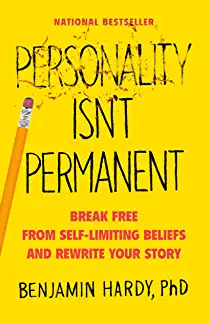Is Change Possible?

Have you ever said, or heard someone else say:
This is the way I am - I can't change
In his TED talk, The Psychology of Your Future Self, Dan Gilbert discusses recent research into the psychological phenomenon of change.
He states that, despite what we may believe about change, humans are actually:
'works in progress that mistakenly think they're finished.'
It seems we can look back and have an awareness of how much we've changed since our earlier years, but we have difficulty in imagining how we might change in the next 5 or 10 years from now. It's as though we have an illusion that our history has come to an end - that from THIS point, there's no possibility of change.
So, perhaps it's a failure of our imagination - putting limits on what we think is possible. If we can't imagine what our lives might be in 10 years, we can't make a path towards it.
Visualisation and imagination seem to be essential to help us create our future - and they can be powerful tools. Athletes use visualisation, mental imagery and rehearsal to condition themselves for peak performance (1).
As Gilbert states in his talk:
'The one constant in our life, is change.'
By accepting this, and working with change instead of worrying about it and resisting it, we can get to a more balanced, flexible place where we embrace all the possibilities we have.
This idea is expanded in Benjamin Hardy's book 'Personality Isn't Permanent'. Dr. Hardy talks about the trouble with 'personality tests' and how they can fix us with 'labels' that then limit us within borders and barriers, when the truth is, if we're willing to work, we can become who we want to be.
And I think the key idea here is 'work' - as in all things, if it's worth it, it's worth working for. The exercises in this book will help you - if you're willing to put the work in.
The same goes for counselling, of course. Counselling can help you - if you want to work. There are no magic wands, but working together with a counsellor can help you to explore, understand, accept and work on the things that will help you get closer to the life you want.
References:
1. The New York Times: Olympians Use Imagery as Mental Training (22/2/2014)
This article contains an affiliate link
